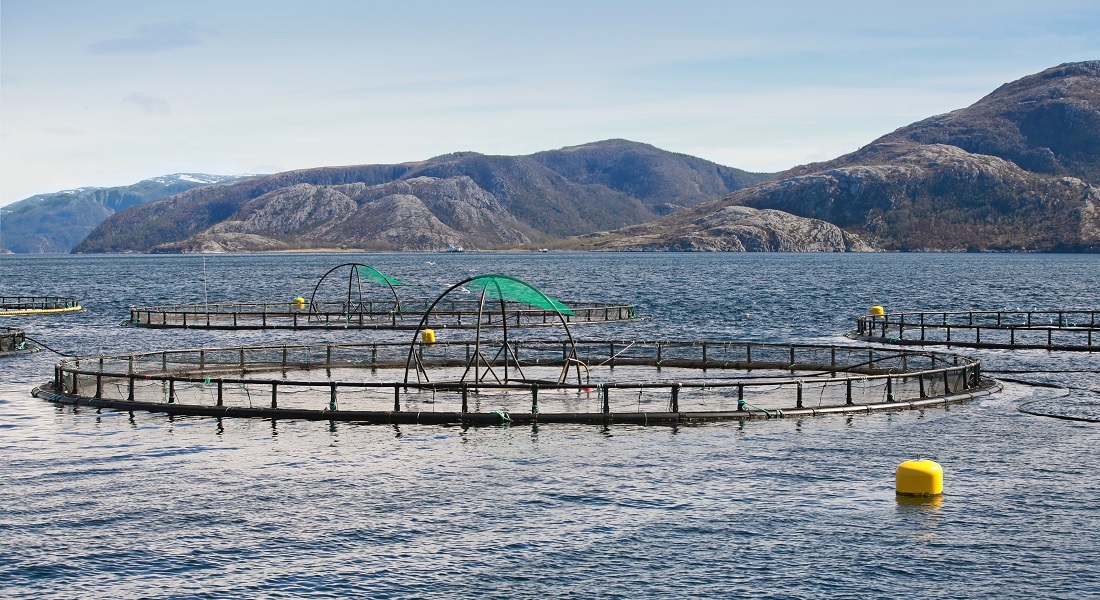In a new study researchers from the Center of Evolutionary Hologenomics have uncovered novel insights into the biological role of the Mycoplasma bacteria in salmonid gut health. The study indicates that the Mycoplasma bacteria plays an active role in the development of the fish host, thereby enabling a potential optimization of aquacultural production by tailoring feed to benefit the microbiome specifically.

The reciprocal relationship between the gut microbiota of salmonid species and their hosts has been further clarified in a new research paper published in the journal Communications Biology, written by PhD student Jacob Agerbo Rasmussen, Associate Professor Morten Limborg and colleagues from the Center for Evolutionary Hologenomics. This research paper has uncovered a correlation between the Mycoplasma gut bacteria and development in several salmonids that are used for aquaculture.
Although Mycoplasma has been found to be dominant across fish gut microbiomes, until now there was little understanding of its full biological significance and functional role within the gut. “Mycoplasma bacteria have been associated with salmonids for nearly two decades, but their functionality has not been investigated in such depth,” says lead author Jacob Agerbo Rasmussen. “In our study we use novel techniques, such as whole metagenome sequencing and genome resolved metagenomics to investigate the until now highly unknown functional role of Mycoplasma across several species of salmonids.
This study has shown that the Mycoplasma present in the gut microbiome of the salmonid host is instrumental for juvenile salmonids, as it putatively enables the digestion of insects and crustaceans that make up a large portion of the natural diet of juvenile salmonids. Moreover, the findings indicate that Mycoplasma can boost metabolism, possibly due to its ability to detoxify ammonia from food, opening up new possibilities for aquaculture.
Mycoplasma’s role in full focus
This new knowledge allows for aquaculture to cater exactly to the developmental needs of the fish by tailoring feed to the Mycoplasma present in the gut microbiome of the fish. Understanding this interaction between the fish and their gut microbiome means that the aquaculture industry can optimize production by not just feeding the farmed fish, but knowingly feeding the microbiotas of their fish, thereby promoting fish growth by more accurately filling the nutritional needs.
Jacob Agerbo Rasmussen highlights the applicable potential, stating that “our findings could be used as a foundation for a better functional understanding of Mycoplasma in salmonids, which could be highly beneficial for aquaculture, where Mycoplasma could used as a functional feed or maybe another easy-to-produce bacteria could used to mimic the same functions of Mycoplasma. Functions which could be derived from our research.”
The study adds onto other recent discoveries on the impact of Mycoplasma in its salmonid hosts, deepening the biological understanding of the animals by investigating the host development from a holistic perspective. Jacob Agerbo Rasmussen notes that Mycoplasma has recently been associated with several important factors related to production such as potentially being a biomarker for infection in salmon, having a positive correlation to body size and affecting meat pigmentation.
“These findings are super important because Mycoplasma is often found dominating in the gut of salmonid species,”says the lead author. “Salmonids species like Atlantic salmon and rainbow trout are key species for world wide aquaculture. There is a growing demand for these protein sources, so we need to optimise this production in order to minimise carbon footprint. If we can learn how these microbes interact with their host, we might be able to learn how to optimise such interaction for a more sustainable aquaculture production.”
Read the full paper ‘Genome-resolved metagenomics suggests a mutualistic relationship between Mycoplasma and salmonid hosts’ in Communications Biology here.
Contact:
PhD Student Jacob Agerbo Rasmussen
jacob.rasmussen@bio.ku.dk
Associate Professor Morten Tønsberg Limborg
morten.limborg@sund.ku.dk
+45 61 28 29 84
